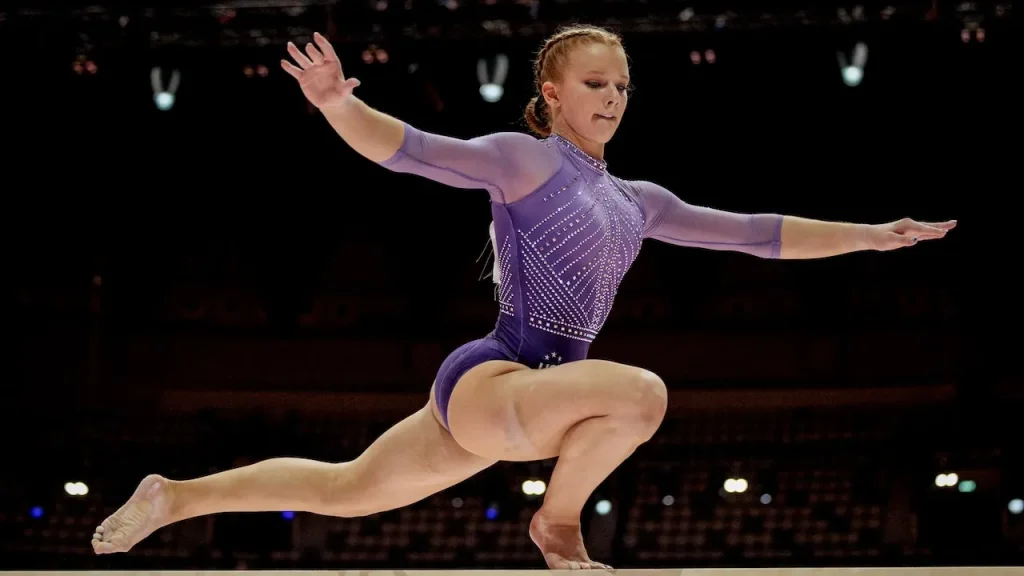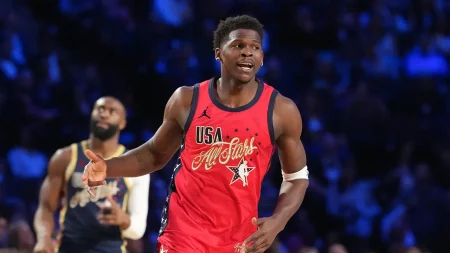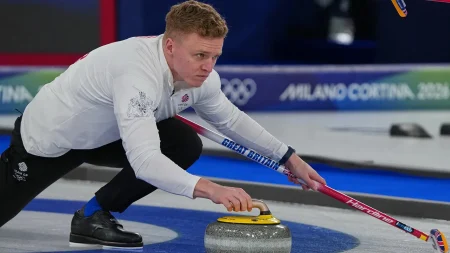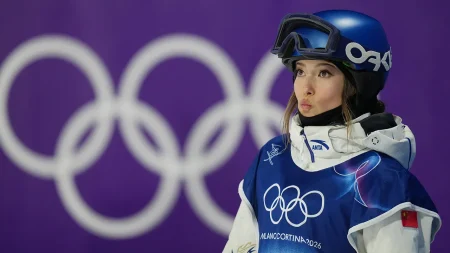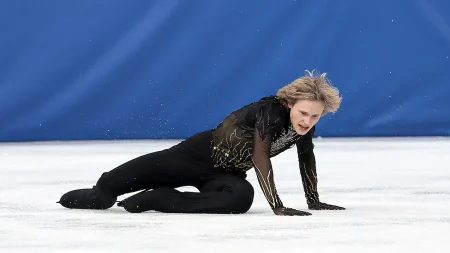U.S. Women’s Gymnastics Team Faces Unexpected Challenges at World Championships
In a surprising turn of events at the recent World Championships in Jakarta, the U.S. women’s gymnastics team secured only two medals—their lowest total since 2001. This unusual outcome marked a significant departure from the team’s typically dominant performance on the international stage. Leanne Wong claimed a silver medal in the all-around competition, while Joscelyn Roberson earned bronze on vault. Meanwhile, both China and neutral athletes representing Russia outperformed the American team, each claiming three medals in the women’s events. The absence of gymnastics powerhouses Simone Biles, Suni Lee, Jade Carey, and Jordan Chiles was keenly felt as the team struggled to maintain its usual commanding presence.
Chellsie Memmel, the U.S. program lead, didn’t mince words when addressing the team’s performance, describing it as “rough” despite acknowledging some positive moments. “I didn’t feel like there was an attack of their events and their skills overall,” Memmel explained to Olympics.com, recognizing that while there were commendable elements in their routines, the overall execution lacked the confidence and precision typically associated with American gymnastics. Her candid assessment highlighted a need for improvement and reflected her commitment to helping the athletes regain their competitive edge. Rather than dwelling excessively on the disappointment, Memmel expressed her intention to have constructive conversations with the team, noting that the gymnasts themselves were already aware of their suboptimal performance and would be eager to reset and refocus in training.
This uncharacteristic showing represents a rare deviation from the U.S. women’s gymnastics team’s remarkable record of success. Since 2006, there have been only two other instances—in 2017 and 2021—when America didn’t claim the highest medal count, instead tying with Japan and Russia respectively. The consistent excellence that has defined U.S. women’s gymnastics for nearly two decades makes this year’s results particularly noteworthy. The team has built a dynasty in the sport, regularly producing not only medal winners but also gymnasts who push the boundaries of technical difficulty and artistic expression. This legacy of excellence has established incredibly high standards, making even a moderately successful showing appear as a significant underperformance by comparison.
Looking ahead to the 2028 Los Angeles Olympics, this World Championship performance raises questions about the future trajectory of U.S. women’s gymnastics. With several years remaining before the home Games, there’s sufficient time for program development, but the results in Jakarta suggest potential challenges in maintaining the team’s historical dominance. The absence of established stars like Biles and Lee revealed a depth issue that hadn’t been apparent when these veterans were competing. Building a strong roster of internationally competitive gymnasts takes years of careful development and competitive experience. While the current team includes talented athletes, the transition period between gymnastics generations appears to be creating more turbulence than anticipated.
Memmel’s approach to addressing the team’s challenges focuses on mental preparation and confidence building. “For me, it means going into each turn with the intent that it’s going to be great, and being confident with it,” she explained, emphasizing the importance of self-belief in gymnastics performance. This perspective acknowledges that technical skills alone aren’t sufficient at the elite level—the psychological component of performing under pressure is equally crucial. Gymnastics demands not only physical precision but also tremendous mental fortitude, as athletes must execute complex skills while managing the intense pressure of international competition. Memmel’s comments suggest that helping the gymnasts develop this confidence will be a key focus of their training moving forward.
Despite the disappointment, this moment may ultimately serve as a valuable recalibration for the U.S. program. The challenges encountered in Jakarta provide concrete feedback about areas requiring improvement and could catalyze productive changes in training approaches, team selection, and competitive strategy. Throughout sports history, dynasties have occasionally faced periods of relative struggle that ultimately strengthened their foundations. For the U.S. women’s gymnastics team, this experience may provide the necessary perspective and motivation to evolve and adapt. With committed leadership from coaches like Memmel and the inherent talent within the American gymnastics pipeline, there’s every reason to believe that this setback is temporary. As the team regroups and refocuses, the gymnastics world will be watching closely to see how this proud program responds to an uncharacteristically challenging World Championships performance.





